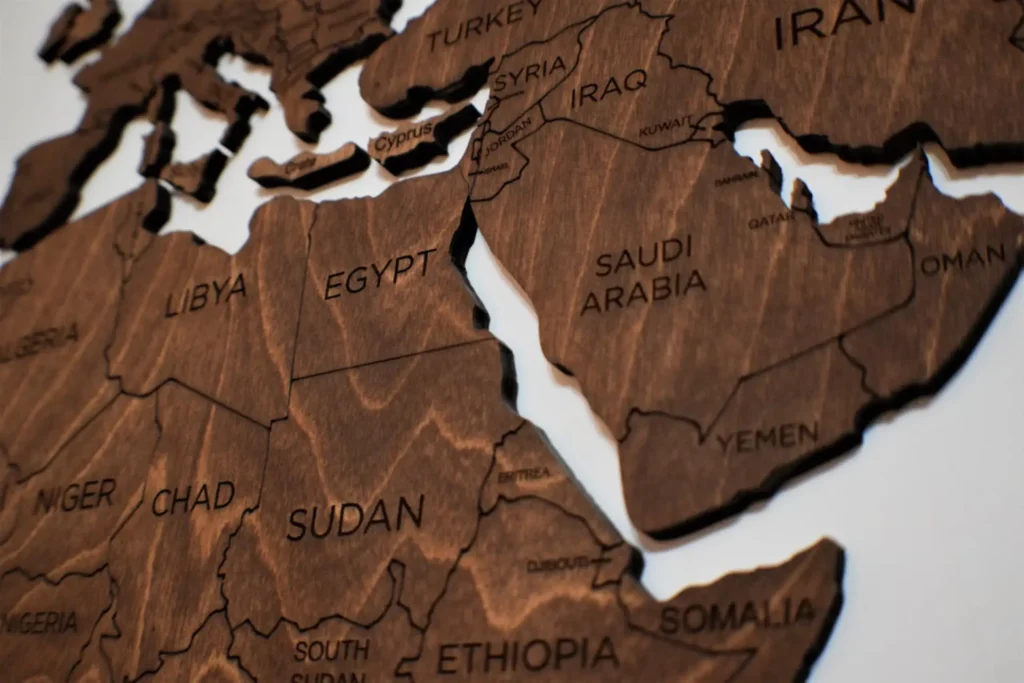All You Need to Know about the Arab Culture
Arab culture is a product of centuries of cultural exchange, conquests, and intellectual advancements. It is a blend of traditions, customs, beliefs, and artistic expressions. In addition, its roots can be traced back to the ancient civilizations of Mesopotamia, Egypt, and the Arabian Peninsula. The region has witnessed the rise and fall of empires, the birth of major religions, and the flourishing of art, literature, and science. When you visit any Arab country and go to another one, you will touch the differences and the common traditions between them, knowing that you’re living in a really different shape of culture than the other countries. We hope that you put such travels on your plan, that will make you never regret having such a different experience in a really different place in the world. Let’s explore some of the points that will be important for you if you want to learn more about Arabic culture or want to visit an Arab country now or in the future. Where Does Arab Come From? The term “Arab” refers to both the Arabic people and their Arabic culture. While the exact origins remain a subject of ongoing exploration, linguistic and archaeological evidence suggests a common ancestry for Arabs, likely emerging in the Arabian Peninsula. Over centuries, Arab communities expanded through trade, migration, and conquest, establishing a cultural footprint across a vast region. Find out more about the Arab world and top 10 destinations in the Arab countries in this article. The People The Arab world is home to a diverse population, with over 300 million people spread across 22 countries. This diversity is reflected in the region’s languages, Arabic dialects, customs, and traditions. Despite these differences, Arabs share a common heritage and a sense of unity that binds them together. Family Arab family culture is deeply rooted in tradition, with a strong emphasis on respect for elders and kinship ties. Families offer a support system, a source of identity, and a source of immense pride. Celebrations and challenges alike are often faced as a close-knit unit, fostering a strong sense of belonging in the Arabic culture. Language Arabic, the language of the Qur’an, is the official language of all Arab countries. It is a rich and expressive language with a vast vocabulary and a complex grammatical structure. Learning Arabic opens the door to understanding the region’s literature, poetry, and philosophy. Arabic dialects, while rooted in Modern Standard Arabic, have evolved over centuries, creating a rich mix of spoken languages across the Arab world. Egyptian Arabic, Moroccan Arabic, and Levantine Arabic are just a few examples of the diverse dialects that add a unique flavor to communication in different regions. To be prepared for your trips to the Arab world, check out some of the survival basic common Arabic phrases that you’ll definitely need to deal with in everyday life with ease and comfort in this article. Greetings and Gestures Physical gestures such as handshakes and kisses on the cheek among the same gender are common greetings. It’s important to show respect by using polite language and proper titles when addressing others Traditions and Customs Arab culture is steeped in traditions and customs that have been passed down from generation to generation. These traditions include hospitality, generosity (like what we are going to discuss further), and respect for elders. The Arab world is renowned for its warm and welcoming people, who take pride in their culture and heritage. Hospitality: The Cornerstone of Arab Culture Hospitality, or “dhiyafah” (ضيافة) in Arabic, is a cornerstone of Arab culture. Guests are considered blessings, welcomed with open arms and treated with generosity. Sharing a meal, offering tea or coffee, and prioritizing guest comfort are all expressions of this deeply ingrained value. Storytelling The art of storytelling is an essential part of the fabric of Arab culture. From captivating folktales passed down through generations to the mesmerizing verses of the Quran, storytelling serves as a means of entertainment, education, and cultural preservation. Gatherings often come alive with tales of heroic deeds, wise proverbs, and enchanting poetry. Fashion and Adornment Arabic culture clothing reflects both practicality and a love for vibrant colors and intricate details. Traditional garments like the thobe for men and abaya for women vary by region and occasion. Beyond Arabic cultural clothing, jewelry and accessories play a significant role in personal expression and cultural identity. Art and Literature The Arab world has a rich artistic heritage, encompassing music, dance, literature, and visual arts. Arabic calligraphy, intricate patterns, and vibrant colors are hallmarks of Arab art. The region has produced literary giants like Naguib Mahfouz, the Nobel laureate, whose works have captivated readers worldwide. Cuisine Arab culture food is a sensory feast, bursting with fragrant spices, fresh ingredients, and regional specialties. From savory mezze platters to slow-cooked stews and aromatic desserts, Arab cuisine reflects the bounty of the land and the importance of sharing meals with loved ones. Food transcends mere sustenance; it becomes a celebration of community and togetherness. Healthcare Beliefs: A Blend of Tradition and Modernity Arab culture healthcare beliefs encompass traditional practices alongside modern medicine. Herbal remedies, dietary restrictions, and faith-based healing methods coexist with advanced medical facilities and scientific advancements. Understanding these beliefs fosters a deeper appreciation for the holistic approach to well-being often embraced in Arab societies. Religion The arrival of Islam in the 7th century CE profoundly influenced Arab culture. While not all Arabs are Muslims, Islamic principles have shaped social norms, legal systems, and artistic expressions across the region. Mosques serve as centers of community, and religious holidays like Ramadan and Eid al-Fitr are vibrant celebrations. Islam is the predominant religion in the Arab world, shaping the region’s culture, values, and way of life. The teachings of Islam emphasize compassion, charity, and social justice. Muslims around the world turn towards Mecca, the holiest city in Islam, for prayer and pilgrimage. Learn more about Arabic in Islam. How Did Islam Help Spread Arabic Culture? Actually, Islam played a significant role in the
All You Need to Know about the Arab Culture Read More »


